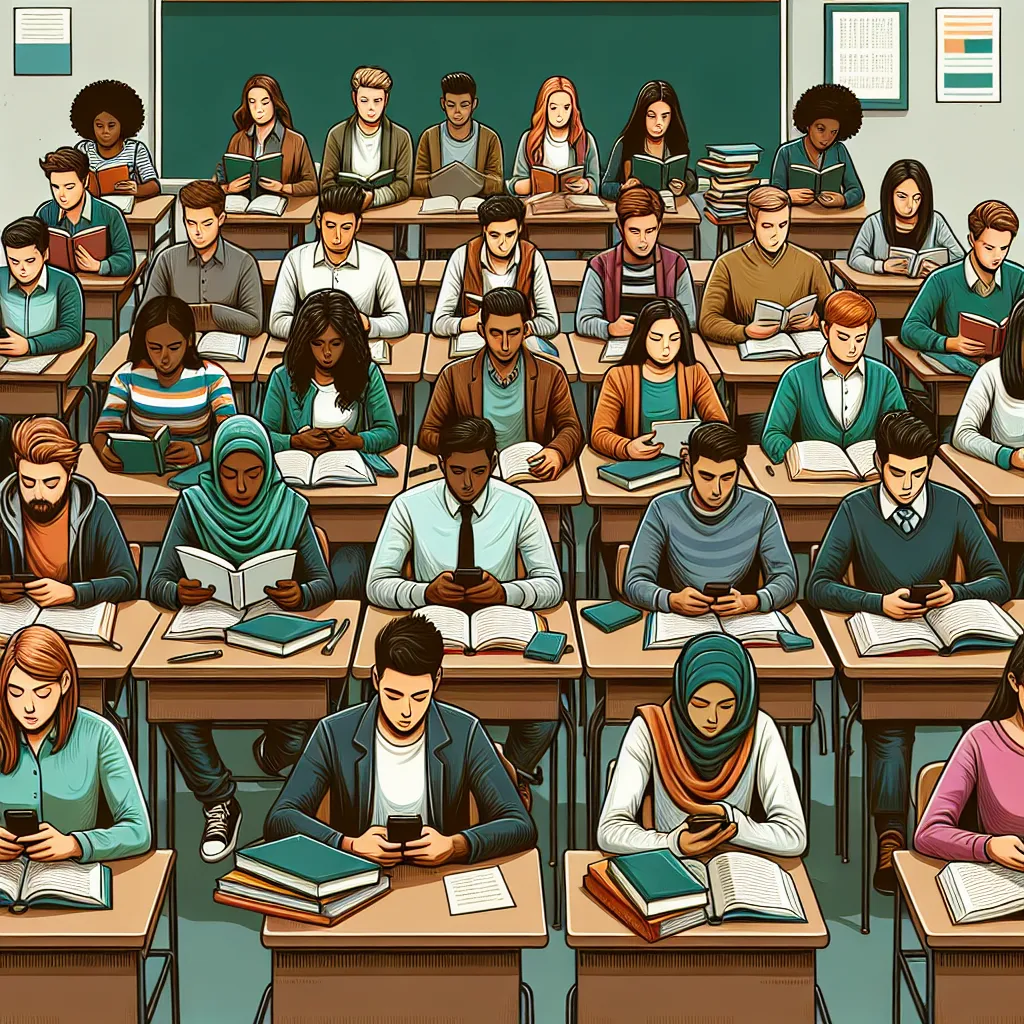Ask AI on The Internet
Question: In class, you have been discussing whether the school day should start and finish layer, because mny teenagers find it hard to get up early. Here are some comments from your classmates: "I don't want to have less free time after school." "Our parents have to go to work early, so we should too." "I can't concentrate early in the morning." "I never go to bed before midnight, so i hate early mornings." Write an article for the school magazine, giving your views.
Title: What Time Should The School Bell Ring? - A Deliberation In recent weeks, a hot topic of debate amongst our school community has been the proposed alteration of the school starting time. Some students are struggling with the early morning rush and have suggested pushing the school day start time a little later. This proposal invites an assortment of views, underpinned by several factors like productivity, family routines, sleep cycles, and recreational time. Many have argued against these changes, fearing a reduction in free time after school. Understandably, many students value their post-school time for recreational activities, part-time jobs, homework, and family interaction. With a later closing time, these activities could be compromised. However, it is essential to consider that a later start may equate to a more productive school day, rendering homework less burdensome and leaving more time to relax later. Interestingly, some students believe that as our parents are leaving for work early, so should we. This idea mirrors the working world schedule and could perhaps prepare us for future early mornings. However, it is crucial to remember that teenagers' sleep requirements differ from those of adults. The Center for Disease Control and Prevention recommends that teenagers get between 8 to 10 hours of sleep each night, indicating that a later school start might be more beneficial to fulfill these sleep requirements. Which leads us to the next concern: concentration. Early mornings aren't for everyone, and research suggests that young people's brains function better later in the day. If school starts too early, students might attend classes sleep-deprived, compromising learning performance and overall health. Lastly, there's the issue of late-night owls. Many students admitted not going to bed before midnight, making early mornings inevitably tough. Adjusting the school start time later and encouraging healthier sleep routines could, therefore, be a win-win. In conclusion, while the difference in opinions is understandable, the potential benefits of a later school start time might outweigh the negatives. Balancing school hours with peak productivity times, facilitating better concentration, fostering healthier sleeping habits, and, above all, improving academic performance seems to offer many benefits to us, the students. However, more conversations, surveys, and perhaps even pilot testing could give a clearer picture of what timetable alteration will hold best for our school. After all, the prime objective should be students' well-being and academic success. Let the Bell Toll - But Later, Perhaps?
A new large language model has been made available since this question was asked.
To generate an updated answer from the new model, click the button below.
Think your answer is better than the AI's? Post it below.
Other Most Relevant Posts:
 Benefit of Volunteering Program for Beginner Writers: Students vs. Community Members
Dear Principal,
I am writing to express my perspective on who would benefit most from implementing a volunteering
Benefit of Volunteering Program for Beginner Writers: Students vs. Community Members
Dear Principal,
I am writing to express my perspective on who would benefit most from implementing a volunteering
Question Tags
If you want your question answered by an AI, click here.






Post your own comment: